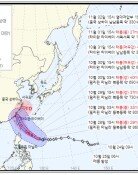Writing ones own obituary
I received lots of love and affection over the years, and I owe a lot to you. Thank you. I am leaving this world today. I sincerely wish you all the best. In its February 8, 1974 issue, The Dong-A Ilbo carried a unique obituary advertisement. It was a self-written obituary of Jin Hak-moon, a retired journalist who passed away at the age of 80 five days earlier. A founding member of Dong-A, who also served as vice chairman of the Federation of Korean Industries, Jin had written a farewell message, and asked the newspaper to publish it after his own funeral.
"Hello. I am Art Buchwald, I died moments ago." The web edition of the New York Times carried a video, which announces the death of the popular U.S. columnist who died the previous night. It was a video clip that was created with his own voice before his death. Since the massive earthquake in 2011 in Japan, more people in the island country have reportedly written their own obituaries or wills. The Japanese movie Ending Note, released last year, is a documentary documented by the daughter of the images of her father who faced imminent death. The father, who was diagnosed with advanced stage stomach cancer, courageously accepted his preparations for his own death as a project of his lifetime.
In its July 28 issue, the Seattle Times in the U.S. carried an obituary written by the female writer Jane Lotter in the classified ad section. Lotter, who died at age 61, started her obituary by saying that the biggest advantage of fighting cancer is to have the time to write her own obituary. She went on to say that she received the gift of life, and she was about to return this gift. Ayako Sono, the author of the Kairō-roku (A Note of Admonition to the Old), said, Psychological sanctioning of my life is to think that I lived an enjoyable life and that it is okay to leave this world any time. She thus suggests that an obituary written by herself before her death is like fixing a seal by herself on an official memorandum submitted to her for sanctioning.
According to the book entitled Journey into Oneself Ancestors write own epitaphs, people of the ancient times sought to find the meaning of life through self-authoring of epitaphs that were to be buried in their tombs or inscribed on their tombstones. Be it an epitaph or obituary, one sometimes needs to reflect upon by oneself while alive the images of him or her to be shown upon his or her death, if not in writing. It will be a pledge to vow to spend the remaining days more valuably, and a wisdom to make a beautiful and meaningful finale of ones own life.
Editorial writer Koh Mi-seok (mskoh119@donga.com)







